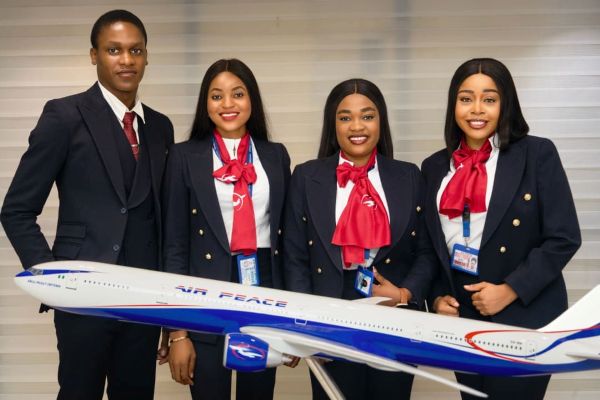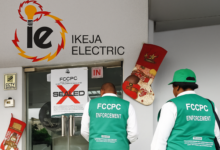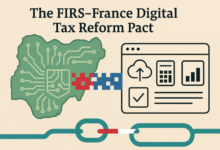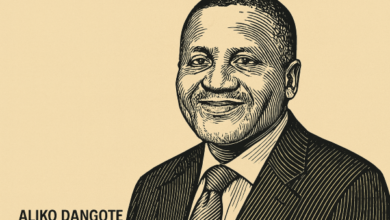Air Peace Launches CXR for Personalized Service

Air Peace has introduced Customer Experience Representatives (CXR) across its domestic network, a concierge-style service for business-class and loyalty-programme passengers that provides human, end-to-end support—from pre-trip calls to airport escort and real-time itinerary updates.
Air Peace is betting on human touch to lift domestic aviation standards. In a statement issued in Lagos on Monday, spokesperson Efe Osifo-Whiskey said the airline has launched a Customer Experience Representative (CXR) programme to deliver personalised, hands-on assistance for select customers across all domestic stations.
Under the Air Peace customer experience initiative, specially trained representatives act as dedicated travel chaperones for two core segments: business-class flyers and members of the airline’s loyalty programme. The CXRs will call passengers ahead of travel to introduce themselves, walk them through document and airport procedures, and receive and support them at the terminal—covering check-in, security/AVSEC wayfinding, and boarding. During disruptions, the reps will proactively communicate changes, resolve concerns, and escalate issues to operations control when needed for faster decisions.
The move extends a series of service add-ons Air Peace has been building—flexible payment options, travel-insurance packages, and hospitality/mobility partnerships that help passengers connect door-to-door. With Nigerian domestic demand shaped by busy business corridors (Lagos–Abuja–Port Harcourt, among others) and a persistent consumer push for reliability and care, concierge-style support is a logical next step for an airline seeking to differentiate beyond schedule and price.
Why this matters for Nigeria’s market
- Service premium vs. price war: Domestic aviation often competes on fares; a high-touch product creates room for yield protection and loyalty stickiness without a race to the bottom.
- Human + digital: Chatbots and apps help, but airport pain points are physical—queues, documentation, gate changes. A trained human rep can compress dwell times and lower anxiety, particularly for business travellers on tight schedules.
- Operational feedback loop: A CXR network becomes a live sensor, feeding real-time pain points from check-in to boarding back into ops. That can improve on-time performance and irregular-operations playbooks.
- Industry signal: If executed well, CXRs could raise expectations for premium domestic travel, nudging peers to upgrade customer-protection and disruption-handling standards in line with NCAA consumer-care requirements.
How the CXR journey works (as announced)
- Pre-trip courtesy call: introduction, documentation reminders, and procedure guidance.
- Airport escort: assistance at check-in and boarding; help navigating security and wayfinding.
- Proactive comms: itinerary updates/changes pushed early; issues escalated quickly for resolution.
- Scope: applies to business-class and loyalty-programme passengers across all domestic stations.
Strategic context: the competitive edge
Air Peace’s domestic footprint gives it scale, but consistency is the challenge. Nigerian airports vary in capacity, peak-hour congestion, and infrastructure. A standardised CXR playbook—training, escalation paths, and measurable KPIs—will determine whether this becomes a brand asset or a patchy perk. Done right, it can lift Net Promoter Score (NPS), repeat purchase, and corporate accounts conversion.
Risks & execution watchouts
- Consistency across stations: uneven staffing or training will dilute the promise.
- Peak-time throughput: reps must accelerate—not slow—flows during Lagos/Abuja peaks.
- Data privacy: pre-trip calls and personalised handling require robust data-protection protocols and audit trails.
- Cost discipline: concierge service is labour-intensive; benefits should show up in premium yields and retention.
What to watch (30/60/90)
- 30 days: clarity on enrolment rules for loyalty members; visible presence of CXRs at key stations (LOS, ABV, PHC).
- 60 days: early on-time performance and complaint-resolution trends for CXR-handled passengers.
- 90 days: expansion roadmap (more reps, extended hours), integration with disruption compensation and corporate travel SLAs.
BRANDECONOMY Take
By formalising concierge-level support for premium segments, Air Peace is shifting the battleground from price to experience—a smart hedge in a market where schedule reliability and airport friction often determine loyalty more than a ₦2,000 fare difference. The CXR model turns frontline staff into problem-solvers, not just process agents. If Air Peace hardwires metrics (NPS, dwell time, save-the-day recoveries) and links them to training incentives, CXR can become a repeatable advantage and a template for domestic premiumization in Nigerian aviation.
FAQ
Who is eligible? Business-class passengers and loyalty-programme members on Air Peace domestic flights.
What does a CXR actually do? Pre-trip guidance, airport escort through check-in and boarding, real-time updates, and issue escalation during disruptions.
Is it nationwide? Yes—Air Peace says it applies across all domestic stations.
How does this help business travellers? It reduces uncertainty and time wastage, improving on-time connections and productivity.











